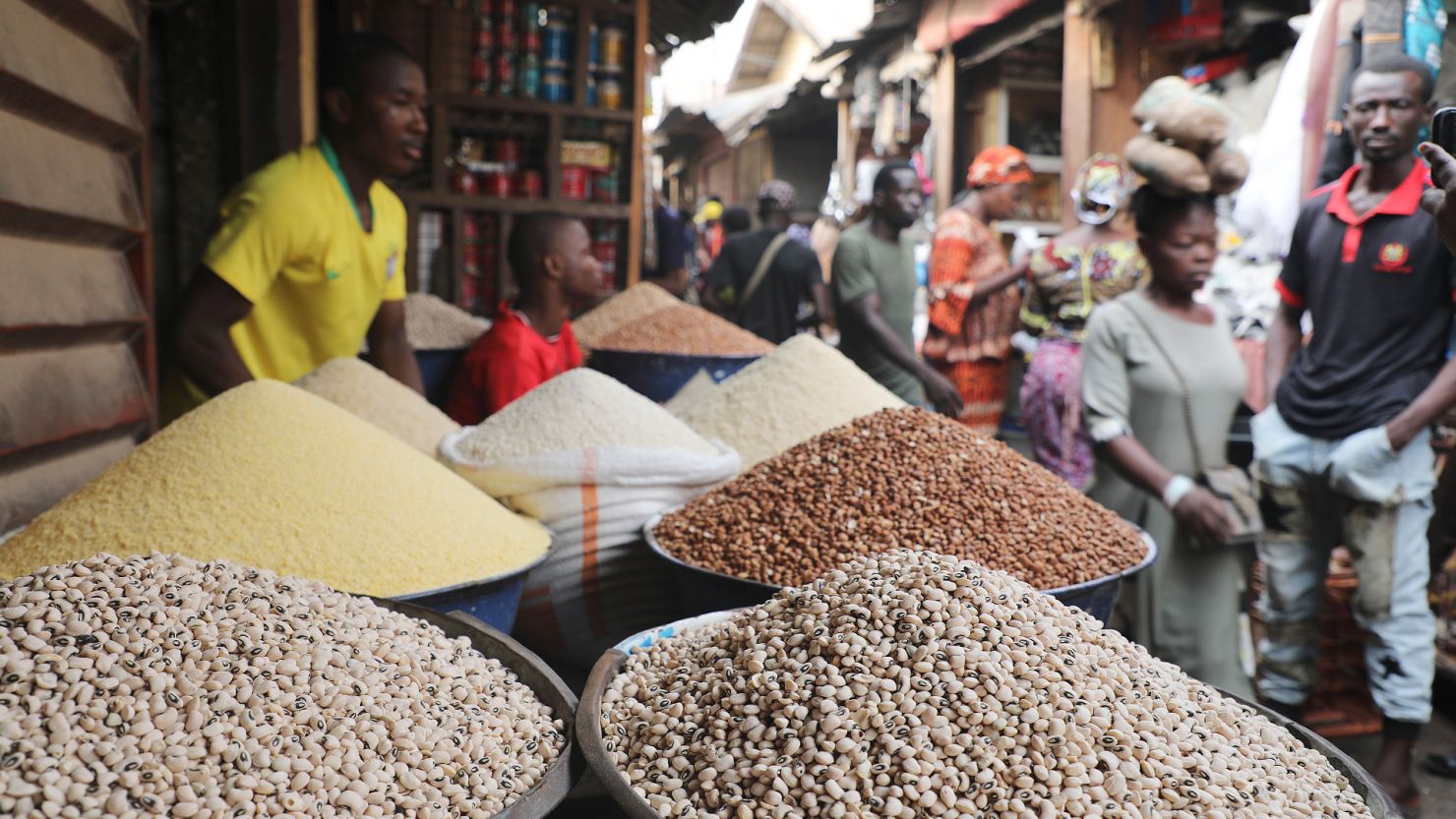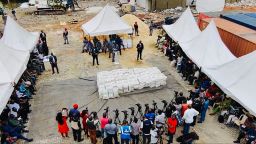The?Nigeria Customs Service?has paused the sale of seized bags of rice to needy residents amid growing hunger in the country, after confirming people were trampled to death during a deadly crowd surge at its Lagos office Friday.
In a statement late Monday, the service confirmed multiple eyewitness reports that people died and others were injured in the Friday crush, but did not specify the number of victims.
“Unforeseen challenges arose when we ran out of stock and announced the continuation of the exercise the following day, leading to a regrettable outcome,” spokesperson for the service, Abdullahi Maiwada, said in the statement.
“The crowd became desperate and charged through our barricades in search of rice bags inside emptied containers. In the stampede that ensued, some fatalities and injuries were regrettably recorded,” Maiwada added, announcing “the suspension of this exercise until we establish what transpired.”
Thousands thronged the Lagos customs office - each struggling to grab a bag of the 25-kilogram (55-pound) rice selling at a discounted price of 10,000 naira ($6.80) as the price of food continues to skyrocket in Africa’s most populous country.
The cost of rice, a staple food in the West African country, has surged in recent months and is now priced at more than N70,000 naira ($47.60) per 50-kilogram bag, compared to a range of 45,000 to 50,000 naira previously.
Nigeria is battling one of its worst cost-of-living crises that has seen inflation rise to nearly 30% - the highest in 30 years.
Its local currency has also plummeted, losing more than half its value to the US dollar, further compounding the woes of the country’s imports-driven economy.
‘End hunger’ protests
Fresh protests broke out on Tuesday as labor unions mobilized for nationwide demonstrations to rail against the economic hardships. The hashtag #EndHungerProtest has also trended on social media.
Nigeria’s President Bola Tinubu campaigned on a “Renewed Hope” manifesto that promised to grow the economy and “deliver food security and affordability.”
But one protester’s placard said the country is now experiencing “Renewed hunger for the people.”
Nigerians are also grappling with high transport costs that rose sharply after Tinubu ended subsidies on petrol during his inaugural speech in May, saying it was unsustainable and a drain on public finances.
However, he came under fire months later for approving a budget that allocated millions of dollars for purchasing luxury vehicles for the presidency, and to cover the cost of renovating the president’s residential quarters amid the country’s mounting debts.
More than 80 million Nigerians survive on less than $2 a day, representing “the world’s second-largest poor population after India”,?according to?the World Bank.
Nigeria’s finance ministry announced Monday it had resumed a cash transfer of 25,000 naira ($15.88) to vulnerable citizens for the next three months to ease the hardship in the country.
The government also endorsed a 2012 recommendation from a presidential committee that recommended cuts to government staffing levels.

